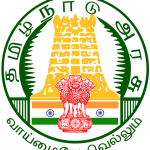
1. Tamil Nadu Chief secretariat which is situated at
A) High Court
B) Madras University
C) Supreme Court
D) St. George Fort
Explanation : Ans : (D)
In Tamilnadu, the secretariat is called as the Chief Secretariat which is situated at St. George Fort, Chennai.
The Chief Secretariat of Tamilnadu consists of officers who are appointed for a fixed tenure. The secretariat consists of officers belong to All India Service and the officers recruited by the Tamil Nadu Public Service Commission.
Generally, the number of departments in secretariat differs from state to state. It ranges from 15 to 35. There are 25 departments included in the Chief Secretariat in Tamilnadu.
Functions of Secretariat :
The Secretariat is a staff agency by which it has to advise the executive departments in the implementation of the Public policies. Its basic function is to assist the minister in the fulfillment of his role.
The place of Fort St. George was transferred to the English by an agreement signed between Venkatapathy Rayalu, one of the last rulers of Aravidu dynasty of Vijayanagara fulers and Sir Francis Day. This grant was authenticated and confirmed by Sri Rangarayulu, nephew of Venkatapathy and Thomas Ivy who succeeded Sir Francis Day in 1642. The grant expired and Ivy sent factor Greenhill on a mission to meet the new Raja at chandragiri for the renewal of the grant. The new permanent grant was renewed in 1645. Fort St.George was constructed at a cost of 3000 pounds.
2. Match the following and select the correct answer :
a) Egg 1) Brown revolution
b) Fertilizer 2) Golden revolution
c) Honey 3) Silver revolution
d) Leather 4) Grey revolution
Codes :
a) b) c) d)
A) 3 4 2 1
B) 1 3 4 2
C) 4 2 1 3
D) 2 1 3 4
Explanation : Ans : (A)
List of all Revolutions :
Revolution Product related to
Silver
Revolution – Egg / Poultry
Production
Grey Revolution – Fertilizer
Golden
Revolution – Fruits/Overall
Horticulture
develop-
ment/Honey
Prod-
uction
Brown
Revolution – Leather/non-
conventional
(India)/
Cocoa
Production
Black Revolution – Petroleum Production
Blue Revolution – Fish Production
Golden
Fibre – Jute Production
Revolution
Green Revolution – Food grains
Pink
Revolution – Onion production/
Pharmaceutical
(India)
/ Prawn
production
Red
Revolution – Meat and Tomato
Production.
Round Revolution – Potato
Silver
Fiber – Cotton
Revolution
White
Revolution – Milk / Dairy
(In India : production
Operation Flood)
Yellow Revolution – Oil Seeds production
Evergreen – Overall
development
Revolution of
Agriculture
3. In a reactor the moderator is
A) Uranium 234 B) Uranium 238
C) Cadmium D) Heavy water
Explanation : Ans : (D)
Moderator : The moderator is a material which slows down the speed of the neutrons. The moderator used are light water, solid graphite and heavy water.
Neutrons released from the chain reaction must be moving at the right speed for other atoms of uranium to capture them. If the neutrons are moving too fast then they do not get captured by the nucleus of another uranium atom and the chain reaction stops. The moderator slows the neutrons down so that they can be captured and keep the chain reaction going.
4. Match the following :
a) Lemon 1) Tartaric acid
b) Apple 2) Citric acid
c) Grape 3) Oxalic acid
d) Tomato 4) Malic acid
Codes :
a) b) c) d)
A) 2 1 3 4
B) 2 1 4 3
C) 2 4 1 3
D) 2 3 1 4
Explanation : Ans : (C)
Lemon,
Orange, – Citric acid
Goose berries
Apple – Malic acid
Grape – Tartaric acid
Tomato – Oxalic acid
Vinegar – Acetic acid
Vitamin C – Ascorbic acid
Milk – Lactic acid
Food
and Beverage – Succinic acid
Industry
Ant – Formic acid
Butter – Butyric acid
Tea – Tannic acid
5. Which plant is an excellent example for autonomic movement of variation ?
A) Desmodium gyrans
B) Crocus sativus
C) Oxalis corniculata
D) Oxalis latifolia
Explanation : Ans : (A)
In Desmodium gyrans (Indian telegraph plant), the compound leaf shows three leaflets, one terminal large leaflet and two very small lateral opposite leaflets. The two lateral leaflets move up, move back and them move down and finally back to the original position showing rhythmic movement. Desmodium gyrans is called dancing plant. This plant was used by Indian Scientist Jagadish Chandra Bose for his experiment.






